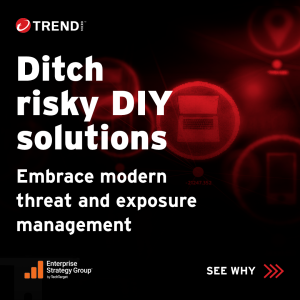Blockchain for Sales Security in RevTech: Transforming Retail with Trust and Transparency

As the retail industry evolves in the digital age, sales security has become a top concern for businesses and consumers alike. With the rise of e-commerce and online transactions, ensuring secure, transparent, and trustworthy sales processes is more important than ever. This is where blockchain technology is stepping in, offering a powerful solution to protect sales, streamline operations, and enhance trust in the retail space.
In the world of RevTech (Retail Technology), blockchain is revolutionizing how retailers secure their transactions, track products, and protect customer data. This blog will explore how blockchain is reshaping sales security and its impact on retail businesses and consumers.
1. What is Blockchain?
At its core, blockchain is a decentralized digital ledger technology that records transactions across multiple computers. Unlike traditional databases that are controlled by a central authority, blockchain is distributed and immutable, meaning once data is recorded, it cannot be altered or deleted. Each transaction is stored in a “block,” which is linked to the previous block, forming a chain of transactions that is transparent and secure.
The decentralized nature of blockchain ensures that no single party has control over the data, reducing the risk of fraud, tampering, and cyberattacks. This transparency and security make blockchain an ideal solution for sales security in the retail industry.
2. Why Blockchain for Sales Security?
Sales security in retail is critical due to the volume of transactions and sensitive customer data involved. Traditional sales processes are often vulnerable to fraud, data breaches, and inefficiencies, particularly in e-commerce environments. Blockchain offers several key benefits that directly address these challenges:
- Data Integrity and Security: Blockchain’s immutable ledger ensures that all sales data is securely recorded and cannot be altered. This eliminates the risk of data tampering and fraud, ensuring the integrity of each transaction.
- Transparency: Every transaction on a blockchain is visible to all participants in the network, creating a transparent record of sales. This transparency builds trust between retailers and consumers, as customers can verify the authenticity of transactions and products.
- Decentralization: Unlike centralized systems, where a single point of failure can compromise security, blockchain is decentralized. This reduces the risk of cyberattacks, as there is no central database for hackers to target.
- Smart Contracts: Blockchain enables the use of smart contracts, which are self-executing contracts with the terms of the agreement written into code. These contracts automatically trigger actions when specific conditions are met, ensuring that sales processes are automated, secure, and error-free.
3. Key Applications of Blockchain for Sales Security in RevTech
Blockchain technology is being applied in various ways to enhance sales security in retail. Here are some of the most prominent applications:
3.1. Secure Payments
One of the primary uses of blockchain in retail is securing payment transactions. By using cryptocurrencies or blockchain-based payment solutions, retailers can offer customers a more secure and transparent payment experience. Blockchain payments eliminate intermediaries like banks, reducing transaction fees and ensuring that payment data is encrypted and protected from cyberattacks.
In addition, blockchain’s decentralized nature ensures that customers’ financial information is not stored in a single location, reducing the risk of data breaches.
3.2. Fraud Prevention
Fraud is a significant challenge in online retail, with identity theft and fake transactions causing billions in losses each year. Blockchain’s transparent and tamper-proof ledger helps prevent fraud by providing a permanent and verifiable record of all transactions. Retailers can verify the authenticity of each sale, ensuring that customer payments are legitimate and that no unauthorized transactions occur.
Blockchain also enables multi-factor authentication and tokenization, adding additional layers of security to prevent fraudulent access to customer accounts and payment details.
3.3. Supply Chain Transparency
Blockchain plays a crucial role in securing the retail supply chain, ensuring the authenticity and traceability of products. From the moment a product is manufactured to when it reaches the customer, blockchain can track every step of the supply chain. This transparency ensures that customers are receiving genuine products and allows retailers to verify the source of their inventory.
For example, luxury brands can use blockchain to authenticate high-end goods, preventing the sale of counterfeit products. Customers can scan a blockchain-based QR code to verify the origin and authenticity of the item they are purchasing.
3.4. Data Protection and Privacy
Retailers collect vast amounts of customer data, from personal details to payment information. Protecting this data is critical to maintaining customer trust. Blockchain enhances data privacy by encrypting customer information and storing it in a decentralized manner, reducing the risk of data breaches.
Additionally, blockchain can give customers more control over their data. Through decentralized identity systems, customers can choose what personal information to share with retailers and third parties, ensuring greater privacy and security.
3.5. Loyalty Programs and Rewards
Loyalty programs are an essential part of retail sales strategies, but they often suffer from inefficiencies, fraud, and poor customer engagement. Blockchain can streamline loyalty programs by creating a secure and transparent system for tracking and redeeming rewards. Retailers can use blockchain to issue loyalty points as tokens, which customers can redeem across multiple platforms or even trade with other customers.
By securing loyalty programs on a blockchain, retailers can eliminate fraud (such as fake points or misuse of rewards), while providing customers with a more flexible and transparent system for managing their rewards.
4. The Benefits of Blockchain for Retailers and Customers
Blockchain offers several key benefits for both retailers and customers in terms of sales security:
- Increased Trust: Blockchain’s transparency builds trust between retailers and customers, as all transactions are recorded in an open and verifiable ledger. Customers can feel confident that their purchases are secure, and retailers can easily verify the authenticity of sales.
- Reduced Fraud: By providing a tamper-proof record of transactions, blockchain significantly reduces the risk of fraudulent sales, counterfeit products, and unauthorized payments.
- Lower Costs: Blockchain eliminates intermediaries in payment processing, supply chain management, and data storage, reducing transaction fees and operational costs for retailers.
- Improved Efficiency: Blockchain automates many aspects of the sales process through smart contracts and decentralized ledgers, reducing the risk of errors and speeding up transactions.
- Enhanced Customer Experience: With secure payments, transparent supply chains, and protected data, customers enjoy a safer, more reliable shopping experience. The use of blockchain in loyalty programs and rewards also enhances customer engagement and satisfaction.
5. Challenges of Blockchain Adoption in Retail
While blockchain offers numerous benefits for sales security, there are some challenges to its adoption in the retail industry:
- Scalability: Blockchain networks can struggle with scalability, particularly when handling large volumes of transactions. Retailers need to ensure that blockchain systems can handle the high transaction speeds and volumes typical in retail environments.
- Integration with Existing Systems: Retailers often use a mix of legacy systems and newer technologies, and integrating blockchain with existing infrastructure can be complex and costly.
- Regulatory Uncertainty: As blockchain is a relatively new technology, regulatory frameworks around its use, particularly in payments and data protection, are still evolving. Retailers need to stay informed about regulatory changes to ensure compliance.
6. The Future of Blockchain in RevTech
The adoption of blockchain in RevTech is still in its early stages, but its potential is vast. As the technology matures, more retailers will adopt blockchain to enhance sales security, streamline operations, and build stronger customer relationships.
In the future, we can expect to see:
- Broader Use of Cryptocurrency Payments: As cryptocurrencies become more mainstream, retailers will increasingly accept blockchain-based payment methods, providing customers with faster, more secure payment options.
- Blockchain-Driven Supply Chains: Blockchain will play a more prominent role in supply chain management, ensuring that all products are traceable, authentic, and secure from production to purchase.
- More Advanced Smart Contracts: The use of smart contracts will expand, automating various sales processes, from payments to warranty claims, further improving security and efficiency.
7. Conclusion: Blockchain as a Game-Changer for Sales Security in Retail
Blockchain is revolutionizing sales security in RevTech, offering retailers a way to protect transactions, prevent fraud, and enhance trust with customers. By providing a decentralized, transparent, and immutable ledger, blockchain ensures that sales data is secure and verifiable, transforming the retail industry for the better.
As blockchain technology continues to evolve, its adoption in retail will only grow, reshaping how retailers manage transactions, protect customer data, and build stronger, more secure customer relationships. Retailers that embrace blockchain for sales security will be at the forefront of this technological revolution, leading the way in creating a safer, more transparent retail environment.
This blog can be expanded further to address specific blockchain platforms or retail case studies if desired!







